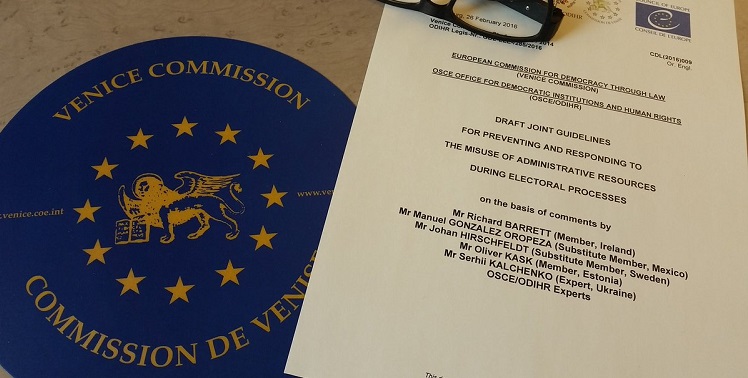Venice Commission welcomes amendments to the Criminal Procedure Code of Georgia

The Venice Commission had sent its delegation to Georgia to study and discuss the bill. Photo:warsawpoint.com.
The Venice Commission of the Council of Europe has welcomed the amendments provided by the Georgian Interior Ministry to the Criminal Procedure Code of Georgia, which strongly separates the obligations of prosecution and investigators.
The ministry claims that clear boundaries between their responsibilities will boost the quality of investigation.
According to the amendments, an investigator will be responsible for the beginning of the investigation and its independent conduct, while prosecutors will be obliged to bring cases to court and see it through to completion.
The Venice Commission says that “nearly all interlocutors in Georgia agreed that such reform is needed”, and that prosecutors and investigators should have clearly defined areas of responsibility.
 Natia Mezvrishvili, Deputy Minister of Internal Affairs of Georgia, requested an opinion from the Venice Commission on the concept on the amendments to the Criminal Procedure Code of Georgia. Photo: Interior Ministry press office.
Natia Mezvrishvili, Deputy Minister of Internal Affairs of Georgia, requested an opinion from the Venice Commission on the concept on the amendments to the Criminal Procedure Code of Georgia. Photo: Interior Ministry press office.
The establishment of an independent investigation is a legitimate objective, and is not contrary to international standards, which leave the Georgian legislator a considerable margin of appreciation in those matters,” the Venice Commission says.
The Venice Commission recommends the following measures to be taken into account:
- The authorities should introduce transitional arrangements enabling them to see how the new division of responsibilities between the police and the prosecutor’s office works out in practice.
- The prosecutor should be able to monitor the work of the investigator, through an electronic information system or otherwise. At the early stages of the reform the prosecutor should be able to keep a closer supervision in respect of certain categories of most difficult/important cases, and should be able, at least, to overrule the decision of the investigator not to proceed with the criminal investigation in such cases.
- Instructions by the prosecutor to the investigative authorities should in principle be in writing (both binding orders and “recommendations”); decisions of the prosecutor overriding decisions of the investigator should contain reasoning;
- The future bill should explicitly provide the duty of the investigator to collect all evidence (incriminating as well as exonerating) and provide that the prosecutor should not rely on illegally obtained evidence;
- A multi-annual plan should be adopted and implemented to accompany the legislative reform; this plan should provide for adequate legal training of the investigators, strengthening of internal controls mechanisms within the relevant ministries, etc., and should be supported by adequate allocation of resources.
- The Interior Ministry says that the bill will be presented to parliament in the coming months.
In the current system prosecutors and investigators share responsibility for the pre-trial investigations. Most of the investigations are conducted by the investigators of the police and of several other ministries and services, but under close supervision by the prosecutors.
 Tweet
Tweet  Share
Share